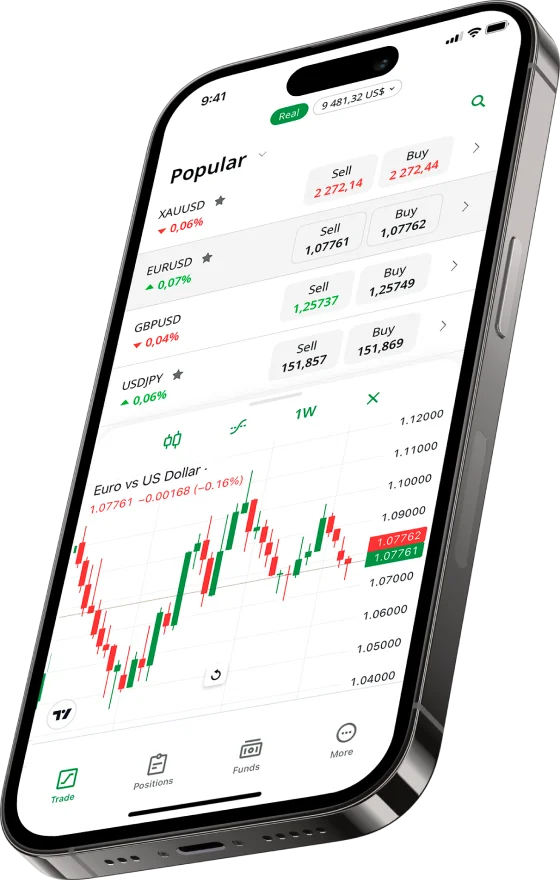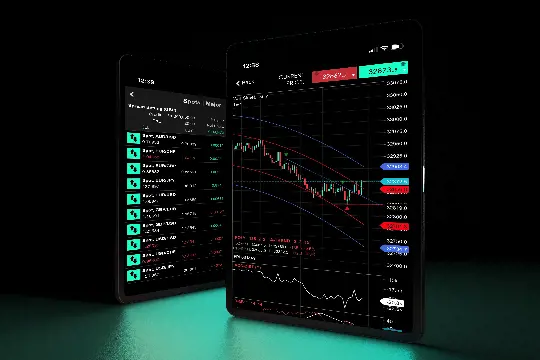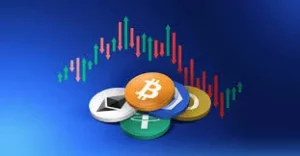Indonesia has emerged as one of Southeast Asia’s fastest-growing cryptocurrency markets. Millions of traders actively buy and sell digital assets using both local and international exchanges. The interest began to rise sharply after 2020, when the government officially recognized cryptocurrency as a tradable commodity under the Commodity Futures Trading Regulatory Agency (BAPPEBTI).
Key Factors to Consider Before Choosing a Trading Platform
Selecting a trading platform requires evaluating several technical and practical criteria. Every exchange in Indonesia differs in liquidity, fees, available coins, and compliance with local regulations. The decision often depends on trading goals—whether someone wants long-term investments or active day trading.
Security and User Protection
Security is the top consideration in cryptocurrency trading. Reputable platforms in Indonesia use multiple layers of protection to secure user data and funds. Typical safety measures include:
- Two-Factor Authentication (2FA): Prevents unauthorized logins.
- Cold Wallet Storage: Keeps most digital assets offline to avoid hacking attempts.
- Withdrawal Whitelists: Ensures funds can only be sent to verified addresses.
- Regular Audits: Confirms internal systems follow security standards.
- Insurance Coverage: Some exchanges insure digital assets against theft or system breaches.
Traders should also review a platform’s incident history. A clean record shows strong operational discipline. Exchanges licensed by BAPPEBTI are generally more transparent about compliance and internal controls.

Supported Coins and Trading Pairs
The number of available coins and trading pairs influences trading opportunities. Most Indonesian platforms offer 100 to 200 coins, including major assets like BTC, ETH, and USDT. Advanced exchanges also list DeFi tokens, NFTs, and GameFi projects.
When comparing options, pay attention to:
- Liquidity: High-volume pairs like BTC/IDR and ETH/IDR guarantee smoother order execution.
- Stablecoin Access: USDT and USDC pairs help reduce volatility.
- New Listings: Frequent updates indicate a proactive trading environment.
- Cross-Market Access: Some platforms provide global markets with IDR conversion support.
Choosing an exchange with balanced variety helps diversify portfolios without compromising liquidity.
Deposit and Withdrawal Options in IDR
Depositing and withdrawing Indonesian rupiah efficiently is crucial for active traders. A reliable exchange should support fast and affordable local payment systems.
Common deposit and withdrawal options include:
- Bank Transfers (BCA, Mandiri, BNI, BRI): Widely supported with instant settlement.
- E-wallets (OVO, DANA, GoPay): Convenient for small to medium amounts.
- Virtual Accounts: Frequently used for automated transfers.
- QRIS Payments: Suitable for mobile transactions.
Below is a simple comparison table illustrating average deposit and withdrawal times for local exchanges.
| Method | Average Deposit Time | Average Withdrawal Time | Typical Fee Range |
| Bank Transfer | 5–15 minutes | 10–30 minutes | 0.1–0.5% |
| E-wallet | Instant | 10–20 minutes | 0.2–0.6% |
| Virtual Account | Instant | 5–10 minutes | 0.1–0.3% |
| QRIS | Instant | Not always supported | 0.2–0.4% |
When evaluating options, traders should check fee transparency and verify whether the platform uses official banking partners. Avoid exchanges that process IDR through unofficial payment channels, as these may violate BAPPEBTI rules.
Best Crypto Trading Platforms in Indonesia
The Indonesian crypto landscape offers both local and international exchanges that cater to different trading styles. Below are several notable names trusted by local traders for reliability, compliance, and liquidity.
| Exchange Name | License Status | Key Features | Suitable For |
| Indodax | Registered with BAPPEBTI | Wide IDR support, mobile app, over 200 trading pairs | Beginners and casual investors |
| Tokocrypto | Registered with BAPPEBTI | Backed by Binance, simple interface, fast KYC | Traders who prefer Binance-linked liquidity |
| Pintu | Registered with BAPPEBTI | Clean mobile design, educational content, strong security | Mobile-first investors |
| Rekeningku | Registered with BAPPEBTI | Many local bank channels, responsive customer service | Active day traders |
| Binance (Global) | International license, limited local access | High liquidity, advanced charts, futures trading | Experienced traders using VPN or offshore setups |
Local exchanges are generally the safest for IDR transactions and compliant tax reporting. International platforms may offer better liquidity and tools but come with more complex KYC verification and foreign jurisdiction risks.
Comparison Table: Fees, Coins, and Features
When selecting an exchange, traders usually compare trading fees, supported coins, and payment options. These variables directly affect trading costs and convenience.
Trading Fees Comparison
Fees vary based on the exchange’s model—some use flat maker-taker rates, while others offer tiered systems based on monthly volume. The table below shows average fee structures among the leading platforms in Indonesia.
| Exchange | Maker Fee | Taker Fee | Fee Notes |
| Indodax | 0.10% | 0.30% | Flat fee system, no hidden charges |
| Tokocrypto | 0.10% | 0.10% | Same fee for all pairs |
| Pintu | 0.10% | 0.10% | Simple mobile interface, instant swaps |
| Rekeningku | 0.15% | 0.25% | Tiered discounts for higher volume |
| Binance | 0.02% | 0.04% | Global average, with BNB fee reduction |
Low-fee exchanges are better for frequent trading, while high-fee platforms often provide local payment convenience and easier compliance.
Available Coins and Tokens
The number of listed assets is a major difference between exchanges. Traders seeking portfolio diversification prefer platforms with a large selection, while beginners often focus on stability and liquidity.
| Exchange | Approx. Number of Coins | Highlighted Tokens | Market Depth |
| Indodax | 200+ | BTC, ETH, DOGE, ADA | Strong IDR liquidity |
| Tokocrypto | 300+ | BNB, SHIB, AVAX, SOL | Connected to Binance markets |
| Pintu | 150+ | BTC, ETH, USDT, AXS | Balanced for long-term holding |
| Rekeningku | 120+ | XRP, TRX, MATIC, LTC | Moderate liquidity |
| Binance | 400+ | All major and niche tokens | Deepest liquidity globally |
Variety is helpful, but excessive choice can overwhelm new traders. Focus on coins with consistent demand and verified trading volumes.
Deposit and Withdrawal Methods
Ease of deposit and withdrawal remains one of the most important factors for Indonesian traders using IDR. Below is a summarized comparison.
| Exchange | Deposit Options | Withdrawal Methods | IDR Support |
| Indodax | Bank, E-wallet, QRIS | Bank transfer | Full |
| Tokocrypto | Bank, OVO, DANA | Bank transfer | Full |
| Pintu | Bank, Virtual Account | Bank transfer | Full |
| Rekeningku | Bank, QRIS | Bank transfer | Full |
| Binance | Limited | Foreign bank or stablecoin | Partial |
Local traders who prioritize quick settlements typically prefer Indodax or Tokocrypto. Binance users often move funds via stablecoins instead of IDR.
Taxation and Legal Responsibilities
Cryptocurrency in Indonesia is legally treated as a commodity under the supervision of BAPPEBTI and the Ministry of Trade. It is not recognized as a currency, which means crypto cannot be used for direct payments. All transactions involving digital assets are subject to regulations and tax obligations.

Crypto as a Commodity in Indonesia
BAPPEBTI classifies digital assets as tradable commodities similar to gold or oil. Every exchange operating legally must register and follow strict reporting rules. The government also defines a list of approved tokens eligible for trading, usually focusing on those with strong global liquidity.
Key legal points include:
- Crypto can be traded, but not used for everyday purchases.
- Exchanges must store user funds securely and maintain regular audits.
- The list of permitted coins is periodically updated by BAPPEBTI.
This classification protects users from market manipulation and promotes accountability across the industry.
Reporting and Paying Crypto Taxes
Since 2022, Indonesia has imposed taxes on cryptocurrency transactions. Two types of taxes apply to every trade:
- Value Added Tax (VAT): 0.11% of each transaction.
- Income Tax (PPh 22): 0.1% for trades executed through registered exchanges.
Taxes are automatically collected by licensed exchanges when users buy or sell crypto. Those trading on foreign platforms must self-report through the Directorate General of Taxes (DJP).
Summary of Crypto Taxation:
| Type of Tax | Rate | Collected By | Applies To |
| VAT | 0.11% | Exchange | All transactions |
| PPh 22 | 0.10% | Exchange / Self-report | Profitable trades |
| Annual Tax Reporting | Variable | Trader | Capital gains or income |
Traders are advised to maintain transaction records for accurate reporting during tax filing season.
Risks and Tips for Safe Crypto Trading
Price swings remain the main headache. Daily moves of 5–15% are common on large coins, while small caps can move much more. Liquidity thins during off-hours, widening spreads and increasing slippage. Stablecoins can also lose their pegs during stress, which hits IDR conversions. Counterparty risk exists as well: if an exchange halts withdrawals, funds can be locked for days. Technical failures, smart-contract bugs, phishing, and SIM-swap attacks round out the threat list.
Practical risk controls:
- Use strong 2FA and a unique password manager entry for every exchange.
- Keep trading balances hot; move long-term holdings to hardware wallets.
- Split capital across two venues to reduce single-point failure risk.
- Favor pairs with deep books (BTC/IDR, ETH/IDR, USDT/IDR) for tighter spreads.
- Size orders to match depth; large market orders worsen slippage.
- Avoid clicking links from DMs, forums, or “airdrop” emails.
- Test a small IDR withdrawal channel before moving bigger amounts.
- Track PnL and taxes monthly to avoid year-end surprises.
Order execution hygiene:
- Prefer limit orders during low liquidity hours.
- Use post-only when fee tiers reward makers.
- For volatile listings, bracket with stop-loss and take-profit.
- On margin products, keep leverage conservative and monitor maintenance margin.
Operational routines:
- Re-check withdrawal addresses using whitelists.
- Review API keys; disable withdrawal permission on bot keys.
- Update device OS and revoke old session tokens after phone changes.
Future of Crypto Trading in Indonesia
Regulated growth looks likely. BAPPEBTI continues to refine the whitelist of tradable tokens and strengthen custody requirements. Local exchanges are rolling out more bank rails, virtual accounts, and e-wallet links for faster IDR settlement. Expect a gradual shift toward proof-of-reserves attestations and clearer asset segregation rules as platforms compete on transparency.
Derivatives access should expand via compliant partners, though retail leverage may remain conservative. Tokenized real-world assets could gain traction once listing standards mature. Staking products may appear in simplified forms with clearer disclosures on lockups and validator risks. Education will matter: clean UX, risk labels, and auto-tax statements can set the pace for user adoption.
Bank Indonesia’s exploration of digital rupiah, even in pilot phases, would tighten on-ramps and improve settlement finality for exchanges and payment partners. If implemented, IDR liquidity and reconciliation could become faster and more auditable, reducing operational errors and chargeback disputes.
Cross-border flows will keep using stablecoins for speed, with stricter screening on addresses and travel-rule compliance. In short, more structure, stronger rails, and steadier reporting are on the horizon, while market cycles remain unpredictable.
Frequently asked questions
Is crypto legal in Indonesia?
Yes. Trading is permitted as a commodity under BAPPEBTI rules. Crypto is not recognized as a payment instrument. IDR deposits and withdrawals should pass through approved channels on registered exchanges.


